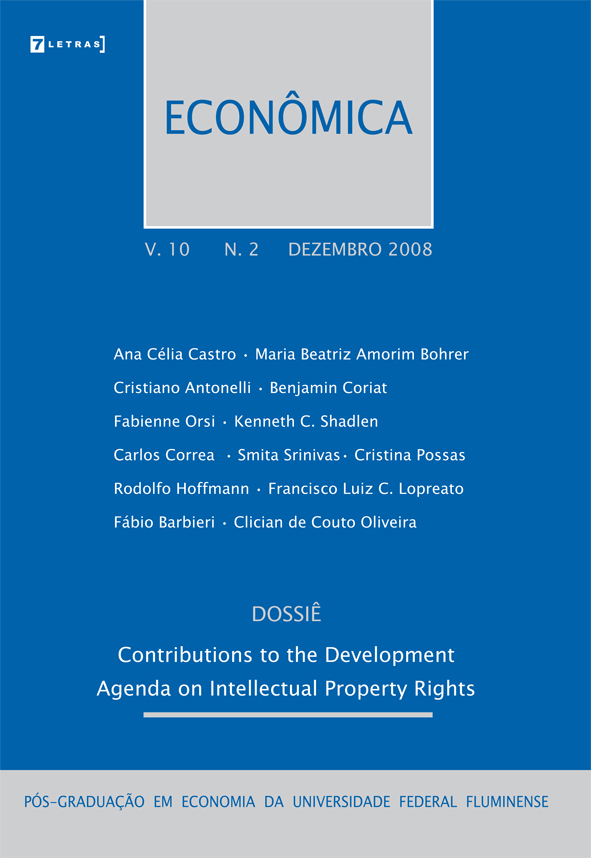Emerging Issues: Pharmaceuticals and Patents in Developing Countries
DOI:
https://doi.org/10.22409/reuff.v10i2.34892Abstract
This article analyses the Intellectual Property Rights (IPR) debateon pharmaceuticals, an issue introduced by TRIPS, a World TradeOrganization(WTO) Agreement on Trade Related Aspects of Intellectual PropertyRights which included pharmaceuticals as subject to patents, equivalent toany other product in the market. Available research results indicate that patentinglife saving products, such as antiretroviral (ARV) drugs, is controversial, since itcreates a temporary monopoly and restricts circulation of knowledge, delayinginnovation and leading to a significant increase in the prices of drugs. In Brazil,in 1996, the country immediately complied to this international agreement andimplemented a National Industrial Property Law in many aspects more restrictivethan TRIPS, with detrimental impacts on the national pharmaceutical enterprises.Contrasting with the Brazilian IPR option, China and India adopteda different strategy and waited for a decade to build their national capacity forresearch and development for pharmaceuticals and ARV drugs, before decidingto comply to TRIPS. We discuss the consequences of these three different policyoptions, examining the implications of the premature compliance of Brazil toTRIPS and anticipating its possible impacts on the successful country’s policyof free and universal access to ARV.Downloads
Downloads
Published
Issue
Section
License
Autores que publicam nesta revista concordam com os seguintes termos:
a.Autores mantém os direitos autorais e concedem à revista o direito de primeira publicação, com o trabalho simultaneamente licenciado sob a Licença Creative Commons Attribution que permite o compartilhamento do trabalho com reconhecimento da autoria e publicação inicial nesta revista.
b.Autores têm autorização para assumir contratos adicionais separadamente, para distribuição não-exclusiva da versão do trabalho publicada nesta revista (ex.: publicar em repositório institucional ou como capítulo de livro), com reconhecimento de autoria e publicação inicial nesta revista.
c.Autores têm permissão e são estimulados a publicar e distribuir seu trabalho online (ex.: em repositórios institucionais ou na sua página pessoal) a qualquer ponto antes ou durante o processo editorial, já que isso pode gerar alterações produtivas, bem como aumentar o impacto e a citação do trabalho publicado (Veja O Efeito do Acesso Livre).

